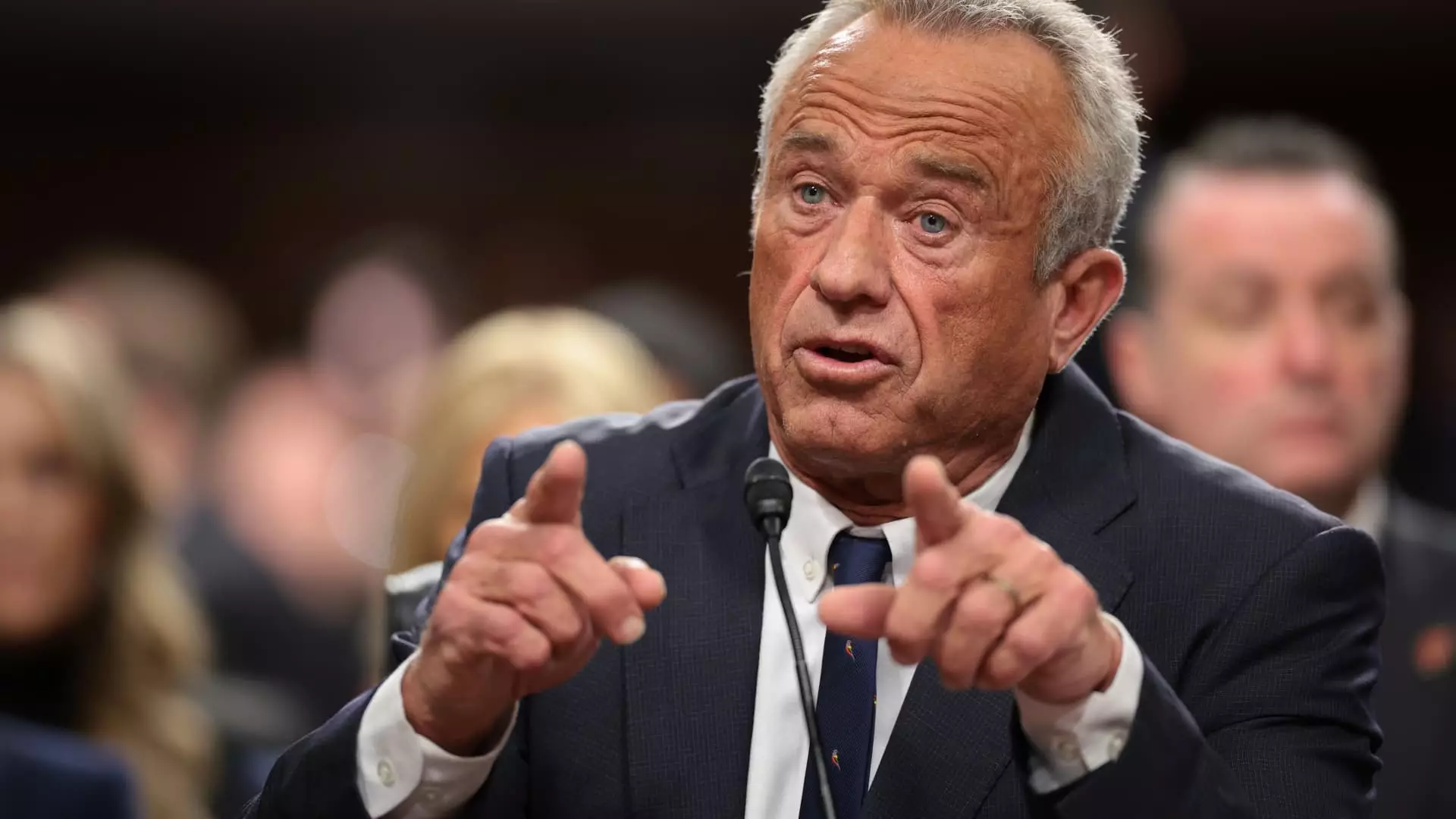The recent declaration by Health and Human Services Secretary Robert F. Kennedy Jr. has stirred a much-needed dialogue about the integrity of our food system. By advocating for the removal of detrimental ingredients, including notorious artificial dyes, he strikes at the very heart of what it means to safeguard public health in America. It is an assertion that should resonate not only with those who are directly affected by food-related illnesses but also with every advocate for consumer rights and welfare. In a nation burdened by chronic diseases, this initiative can serve as a cornerstone for reestablishing trust between consumers and the food industry.
Kennedy’s resolute stance offers a promising glimpse of proactive governance. The weight of his office — presiding over a $1.7 trillion agency that intersectingly controls food regulations, medical provisions, and public health infrastructure — amplifies the potential impact of his policies. The proposed collaboration between his office and leading food executives, including those from major corporations like PepsiCo and Kraft Heinz, reflects a growing acknowledgment of the need for systemic change rather than piecemeal responses. Everyone should be interested in the outcome of this endeavor because the ramifications extend well beyond food labels and ingredient lists.
Understanding the Implications
The reluctance of the food industry to abandon toxic ingredients raises questions about corporate responsibility and the ethics of prioritizing profit over public health. Why have these artificial additives been tolerated for so long? Kennedy’s push to clear the shelves of “the worst ingredients” challenges us to critically analyze the complacency of regulatory bodies that have allowed harmful substances to permeate our diets. From a center-wing liberal perspective, it is essential to advocate for policies that protect the consumer, especially marginalized populations disproportionately affected by health crises.
The FDA’s previous choice to revoke the authorization of Red No. 3, a food dye linked to cancer in laboratory settings, was a small but significant step forward. Why did it take so long for regulators to act, and how many more harmful substances linger in our groceries? These inquiries reveal a concerning gap between scientific evidence and regulatory action. Moving away from artificial ingredients could transform not just individual health outcomes but also alter the general ethos of food production in a way that respects consumer well-being and intelligence.
Shifting Focus to Nutrition
Kennedy’s argument to pivot towards nutritious food rather than pharmaceutical solutions highlights the glaring irony in American healthcare. While the nation invests billions in treatment, it often neglects the root cause of many diseases: poor dietary choices and unhealthy lifestyles. By promoting whole foods and eliminating toxic additives, we could prevent illness before it starts, effectively lessening the burden on healthcare systems. This proactive approach embodies the liberal ethos of empowering citizens through education, trust in science, and sustainable living.
Meanwhile, Kennedy’s focus on addressing childhood nutrition not only champions the future generation but also brings light to an alarming trend: the declining rates of childhood vaccinations. His intentions to review vaccine policies raise eyebrows and warrant scrutiny. However, it should not be overlooked that the root cause of diminishing vaccination rates lies in misinformation and distrust, often fueled by a lack of transparency from health authorities.
A Call for Reformation in Health Policy
Government accountability is imperative if we aim to restore faith in public health initiatives. While Kennedy seeks to replace members on external committees that influence vaccination protocols, the motivation behind those actions should come from a commitment to sound scientific practices rather than politically motivated agendas. As we dismantle alliances that have historically prioritized corporate profits over consumer health, we must replace them with Cooperative initiatives aimed at enhancing public education regarding both nutrition and immunization.
Kennedy’s urgency to initiate discussions with significant food industry players is not merely a political maneuver; it is an invitation for a collective reformation. This is an opportunity for an unprecedented collaboration where businesses are held accountable and align their practices with public health goals. It serves as a reminder that policy change demands not just top-down directives but also grassroots support and awareness.
In the quest for a healthier America, it is essential to remain ever-critical—of our food choices, of our regulators, and of the health corporations that continue to profit while we suffer. This is more than an economic issue; it is a profound moral imperative. Would we stand idly by while the very fabric of our society is compromised for the sake of convenience and profit? The time to demand better, more transparent practices is now.

